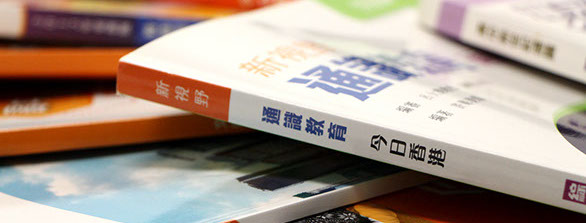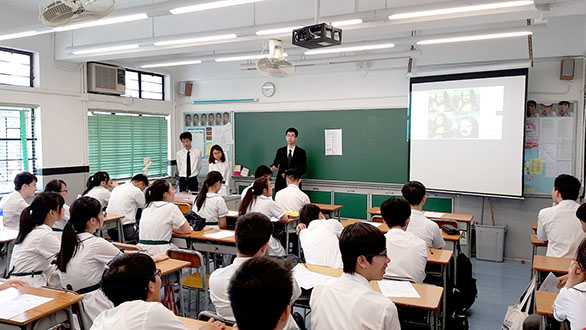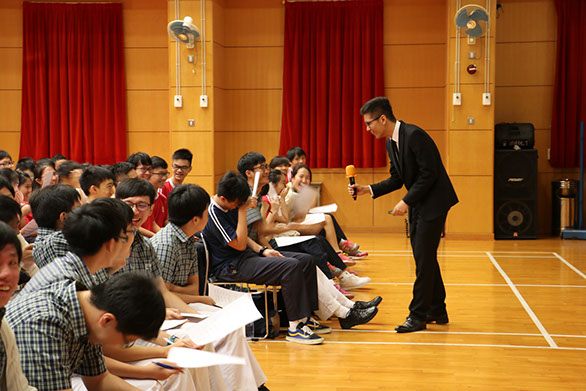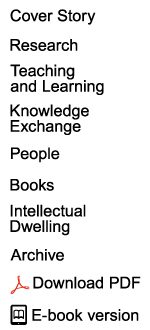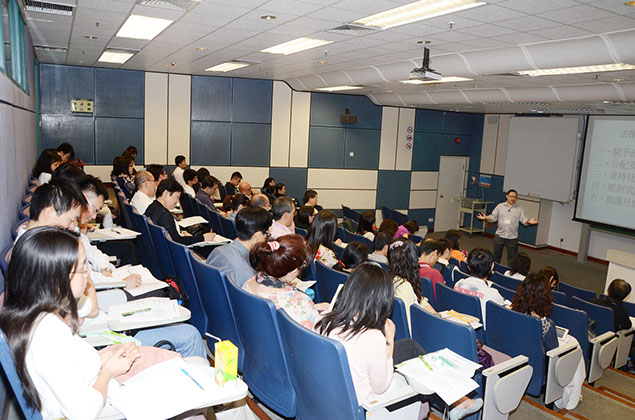
Presenting The Case For Rule Of Law
A project by the Faculty of Law is helping secondary school teachers and students understand one of the cornerstones of justice in Hong Kong.
‘Rule of law’ is a term used by people across the political spectrum in Hong Kong, who attach very different meanings to it. Some believe it means following rules, others that no one is above the law. Even lawyers can struggle with the concept, as Mr Benny Tai Yiu-ting, Associate Professor of Law and an expert on the rule of law, can relate. “They may have some ideas about what it means but not have the kind of understanding to be able to put it in a structural framework and explain it to other people,” he said.
At the urging of a lawyer friend, Mr Tai decided to do something about this deficiency. In 2012 he launched the Rule of Law Education (ROLE) project, in which Faculty staff and HKU law students go into secondary schools to help raise awareness.
“The rule of law has four levels,” he said. “The first is the existence of law. The second is regulation by law. The third is limitation by the law – how the law is used to limit the powers of government. And the fourth level is about using the law to achieve justice such as protecting fundamental rights.”
This conception is conveyed through workshops, teaching kits and lessons taught by HKU students – many of them future lawyers – who not only instruct senior secondary school students but also strengthen their own understanding and ability to explain the concepts. They also receive teaching training.
Their lessons cover the relationship of the rule of law to such topics as same-sex marriage, police powers, copyright, judicial independence, judicial review and the rights of minorities – all of which have been in the news in recent years. Interactive discussions and activities are used to sustain student interest. The sessions are held at the end of the academic year and over the past three years, more than 6,500 secondary school students have participated.
In addition, Faculty staff have organised workshops on the rule of law for more than 350 Liberal Studies teachers from 80 schools. Teachers also can access the lessons taught by HKU students and other materials uploaded to ROLE’s website (http://www.role.hku.hk).
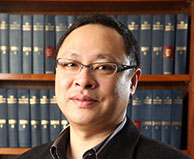
![]() To maintain the rule of law, we need to nurture a rule of law culture in the
To maintain the rule of law, we need to nurture a rule of law culture in the
community. ![]()
Mr Benny Tai Yiu-ting
Correcting misconceptions
These contributions all help supplement the Liberal Studies curriculum. Many textbooks have quoted Mr Tai’s own writings on the subject, but there are also errors in the texts so ROLE provides another service by checking them for accuracy. HKU law students help identify the errors, explained Ms Isabella Liu Wenting, who is helping administer ROLE.
“Some are basic factual errors but some are about differences in values. I think it is very encouraging that most of the publishers do follow our suggestions even though they don’t reply to us directly,” she said.
This year about 65 students joined ROLE including a few students from outside the Faculty, some for a second or third time. Edmund Leung, a fourth-year LLB student, said he was motivated to join in November, 2014 in the wake of the Occupy Movement.
“I wished to be able to provide secondary school students with a better understanding about the rule of law and how it is closely related to institutions in society such as the police and the courts. The concept of the rule of law has been misappropriated and misinterpreted to further political objectives and it is important to equip students with the knowledge to judge whether different formulations are reasonable or not,” he said.
Aaron Chan, who has just completed his LLB, similarly aspired to improve understanding in society. “After I was admitted to the Faculty of Law, I realised that there is a huge gap between what the law means and what people think it means. For instance, some people think a judicial review only abuses and wastes government resources, without realising that it is an effective way to ensure the government is exercising its power properly,” he said.
Mr Tai hopes the experience would not be just a one-off for students. “We hope that students, after they graduate, will continue to have this pro bono spirit when they become lawyers,” he said. “To maintain the rule of law, we need to nurture a rule of law culture in the community.”
He added that ROLE also expanded its audience this summer with sessions for community groups, and plans to organise a whole-day camp for secondary school students.
Back
Many textbooks have quoted Mr Benny Tai’s writings on the rule of law.
Fourth-year LLB student Edmund Leung teaching ‘Interpretation of Basic Law’ in a classroom.
Oscar Tsoi uses interactive discussions and activities when teaching ‘Selective Law Enforcement’ in a school hall.
Training workshops on the rule of law are organised for Liberal Studies teachers.
